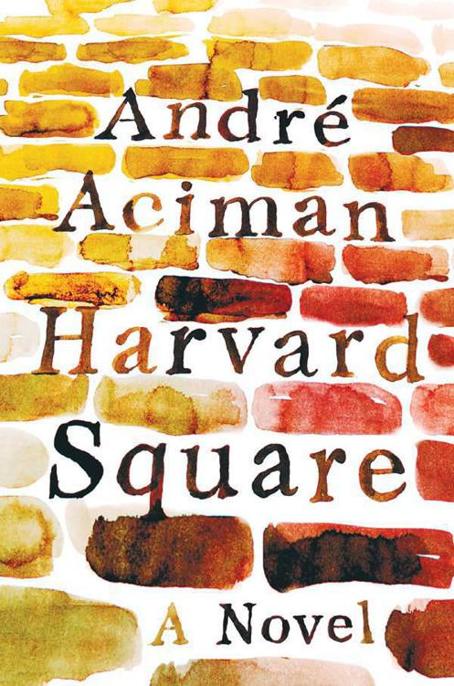
Harvard Square
A Novel
- اطلاعات
- نقد و بررسی
- دیدگاه کاربران
نقد و بررسی

April 15, 2013
Aciman's (Call Me by Your Name) narrator, a young Jewish man originally from Egypt, is a graduate student at Harvard in the mid 1970s. After failing exams he questions his goal of a career in academia. When he's not studying, he frequents Cambridge bars and restaurants that cater to a Middle Eastern clientele, and there he meets Kalaj, a man of Tunisian descent with a magnetic personality. With much in common, the two bond and spend the fall carousing in Cambridge and reminiscing about their pasts. Kalaj struggles to make ends meet as a cab driver and is engaged in ongoing battles with women, lawyers, and the federal immigration bureaucracy. He advises the narrator on, e.g., matters of romance, politics, and the shortcomings of American society. Eventually the narrator returns to the fold at Harvard, while Kalaj seems to be losing his struggle against deportation, and the two drift apart in this bittersweet tale of youth recalled. VERDICT Aciman probes the experience of immigrants and their dislocation and captures the youth and energy of his two main characters. He skillfully explores a side of Cambridge different from picturesque campus scenes and tourist highlights. [See Prepub Alert, 10/22/12.]--James Coan, Milne Lib., SUNY Oneonta
Copyright 2013 Library Journal, LLC Used with permission.

February 1, 2013
Two immigrant outsiders hang out in cafes near Harvard. One vents, the other listens, in this third novel from the Egyptian-born Aciman (Eight White Nights, 2010, etc.). With the students gone, Cambridge in August is a sleepy place. But the nameless narrator does not have the wherewithal to leave town in 1977. He's a graduate, sweating over his dissertation on 17th-century literature, with last-chance exams looming. The 26-year-old is scraping by on library work and tutoring French. His background is sketchy: He's a Jew from Alexandria, Egypt by way of Paris; these autobiographical details are fleshed out in Aciman's well-received 1994 memoir Out of Egypt. He's drawn to the tiny Cafe Algiers by its French-Arab flavor and finds it dominated by a new arrival, a beret-wearing guy in his 30s who holds forth in French about white Americans' addiction to "all things jumbo and ersatz." His rapid-fire delivery has earned him the nickname Kalaj, short for Kalashnikov. He's a Berber from a Mediterranean town in Tunisia, driving a cab while applying for a green card; that bid is in jeopardy because his American wife is divorcing him. Kalaj has an immediate appeal for the narrator (he is his id, his unexpressed anger), and the two become friends. The purpose of Kalaj's rants is to attract women; they are also a defense mechanism, should America reject him. His success with the ladies rubs off on the narrator. In short order, he beds a very rich Persian graduate student, a Romanian baby sitter and another rich graduate student, a white American, plus his always available neighbor Linda. These flings might have been more credible if Aciman had not placed their lovemaking off limits. As for Kalaj, this should have been his story, but he has not been developed into a picaresque hero, which is why Aciman shifts our attention back to his colorless narrator. A rather modest addition to immigrant experience literature.
COPYRIGHT(2013) Kirkus Reviews, ALL RIGHTS RESERVED.

March 1, 2013
A Jewish Egyptian grad student is suffering through a Boston summer in the 1970s, studying for his comprehensive exams and trying to patch together enough cash for food and cigarettes. One day he wanders into Caf' Algiers, where he meets Kalaj, a thirtysomething Arab cab driver who mesmerizes the regulars with his spectacular put-downs (especially of jumbo-ersatz America) and his way with women. Drawn together by language (French) and nostalgia for their Mediterranean childhoods, the two spend the summer wandering from bar to bar, picking up women and talking a blue streak about everything from sex to green cards. But as the fall semester starts up, the student becomes acutely aware of the tension between the refined world of Harvard and his friendship with the often erratic and crude Kalaj, who is soon faced with the threat of deportation. Although Aciman's plotting is jumpy, Harvard Square provides an interesting look at the dilemmas of identity, the concept of home, and our enduring need to belong.(Reprinted with permission of Booklist, copyright 2013, American Library Association.)




دیدگاه کاربران